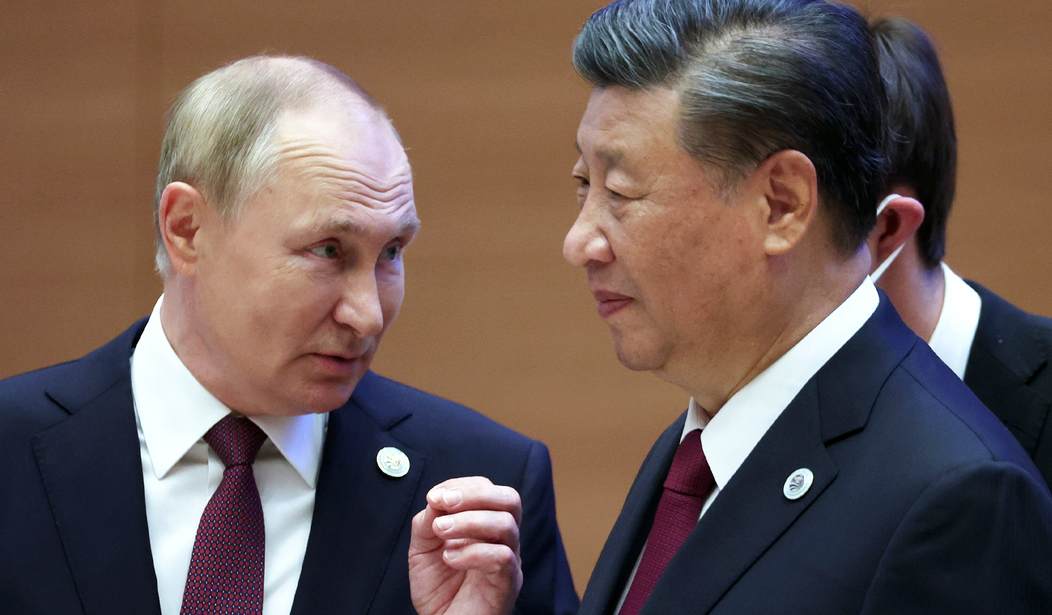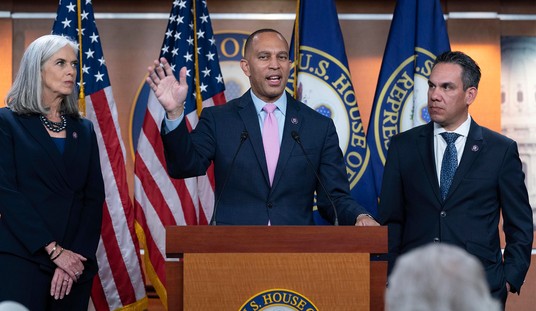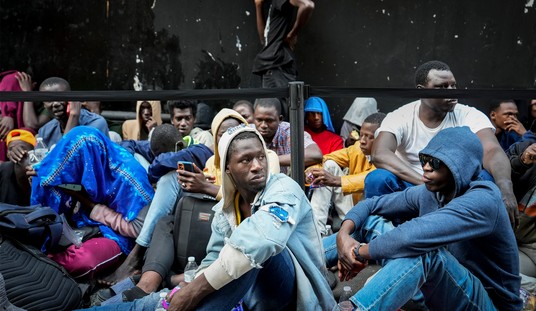America's domination of the Pacific basin, which has lasted since 1945, is in danger. The United States still holds the two most critical pieces of real estate in the Pacific - Alaska and Hawaii - but China is ramping up its naval production, while our navy under the Biden administration has, to put it charitably, stagnated. In 1945, the United States Pacific Fleet had more combatant ships than all the other navies in the world - including the United States Atlantic Fleet. Now our PACFLT is a pale shadow of that mighty force.
And China is looking at the Pacific basin with greedy eyes. In twenty years, will people be looking back at this point in history and saying, "Only Trump could go to China?" In a column at the Washington Examiner, former NSA senior intelligence analyst and counterintelligence officer John Schindler has some thoughts worth considering.
The China problem our 47th president is inheriting from the Biden administration is grave. Like the two terms of former President Barack Obama’s White House before him, President Joe Biden’s China policy has telegraphed diffidence and weakness against a backdrop of American military decline. Two years into his presidency, Biden blurted out that the United States would defend Taiwan in the event of a Chinese invasion, ending decades of “strategic ambiguity” with Washington’s posture vis-à-vis Taipei and Beijing. Biden then repeated this statement at least three other times, with the White House rowing back his rhetoric on each occasion.
Yet Biden never followed up his policy change with action. As a result, Beijing never took our outgoing president particularly seriously. During the embarrassing early 2023 China spy balloon incident, the Defense Department’s efforts to talk with Chinese counterparts to defuse the crisis fell apart because the Chinese military wasn’t taking our hotline calls. In his final meeting with Chinese President Xi Jinping on Saturday, an elderly Biden was unable to project strength, while this week, an effort by Defense Secretary Lloyd Austin to meet with his Chinese counterpart at a security conference in Laos was rudely rebuffed. The Chinese Communists no longer hide their contempt for Team Biden.
This is understandable; not only is Joe Biden the lamest lame duck to ever quack, but he was never a person that someone like Chairman Xi would have (or should have) taken seriously in the first place. The same applies, incidentally, to his soft Secretary of Defense Lloyd Austin. But starting in January, the Chinese will be dealing with a whole new Washington - with President Donald Trump and (likely) Defense Secretary Pete Hegseth.
What will change? It's the work of decades to restore America's ship-building capacity and start restoring our blue-water Navy; Trump won't be able to get that done, not in just his one remaining term. What can he bring to the table to bargain with Chairman Xi?
This dynamic can and must change come noon on Jan. 20, 2025, when Trump returns to the Oval Office. Here, the new commander in chief has an opportunity to demonstrate to Beijing that he will not be publicly disrespected like Biden was. This plays to Trump’s personality and will show China that America takes the threat it poses seriously.
However, the unfortunate reality is that America’s military position against a rising China has declined precipitously even since 2020. Decades of underinvestment in our military, particularly regarding shipbuilding and Navy maintenance, means that the Pentagon can no longer look across the Pacific with confidence that China can be defeated if “the balloon goes up” over Taiwan.
Regarding our military, it's not just the underinvestment in ships and weapon systems; it's the insidious installation of DEI policies and the acceptance of non-deployable personnel. The military, as I keep reminding all and sundry, is not a jobs program for the neurotic; it's an institution that safeguards the liberty and property of the American people by having the equipment and training to close with and destroy the enemy by fire, maneuver, and shock effect. The military should not be deployed without a compelling American interest, but when they are deployed, the enemy should be wetting their pants in terror at the moment the first American soldier steps off the first airplane.
We're not there. And China knows this. And Donald Trump can't get us there in four years.
This week, Adm. Samual Paparo, the Pentagon’s point officer on the China threat as the commander of U.S. Indo-Pacific Command, bluntly stated that there are no technical fixes or superweapons that can change the balance of power in the Pacific. Drones and technological prowess alone can’t save us. As Paparo sarcastically explained, “Oh let’s just quit on everything. We’ve got some drones. Alright, well [China]’s got 2,100 fighters. They’ve got three aircraft carriers. They have a battle force of 200 destroyers. Oh well, roger, we’ve got a couple drones. No problem. You know, we’ve got that Ukraine thing licked.”
Paparo continued that strong Pentagon support to Israel in its proxy struggle against Iran, plus Ukraine’s continuing defensive war against Russia, has significantly degraded U.S. high-end military readiness against China. “Now, with some of the Patriots that have been employed, some of the air-to-air missiles that have been employed,” he said, “it is now eating into [our] stocks … and to say otherwise would be dishonest.”
We have some advantages in the Pacific. We have Alaska and Hawaii, as I noted - and who holds those lands holds the Pacific, and we can hold them as long as we have the forces to cover that mighty ocean. But at the moment, we don't. And China is growing increasingly bellicose - and they are making overtures to Russia, who is already involved in a land war in eastern Europe.
Previously on RedState: Two Critical Data Cables Cut in the Baltic and It Looks Like the Prime Suspect Will Get Away With It
The one thing in America's favor here is that China has serious problems of its own. China's economy is a house of cards, and the entrenched Chinese Communist Party (CCP) is ideologically unable to take any steps that might actually strengthen the economy. The Middle Kingdom is perched on the edge of a demographic cliff and poised to fall off - in two more generations, there may no longer be a China, as a population crash may result in the nation's dissolution into what it was originally - a series of small states ruled by local warlords. There is, however, the possibility that these problems will increase, not decrease, the chance that Chairman Xi and the CCP will be prodded to some kind of action. War is, all too often, armed robbery writ large, and an economically failing China may seek to grab resources and technologies from other Pacific nations, like Indonesia, Vietnam, the Phillippines - and Taiwan.
What can Donald Trump do right away? If he follows his usual course, he'll first talk to Chairman XI. In 1954, the great Winston Churchill famously said:
Meeting jaw to jaw is better than war.
Jaw-to-jaw may be our best option. A Pacific war against China would present a serious challenge to the Pax Americana that has held sway in the Pacific since 1945. And it may get worse: It's entirely possible that the House of Representatives could flip back to the Democrats in 2026. With that flip goes the federal checkbook, and any attempts to rebuild the Pacific fleet could be scotched.
Of course, we're all too familiar with prominent Democrats and their, er, relations with China.
See Related: REPORT: Tim Walz Seduced Daughter of High-Ranking Chinese Communist Party Official
The Japanese Emperor Meiji, who ruled Japan from 1867 to 1912 and was Emperor Hirohito's grandfather, famously said:
All men are brothers, like the seas throughout the world; So why do winds and waves clash so fiercely everywhere?
Plus ça change, plus c’est la même chose. The more things change, the more they stay the same. Another Pacific war would not necessarily develop to America's advantage. The one thing we do have going for us is that China has a plethora of problems of its own. Let's hope that's enough.














